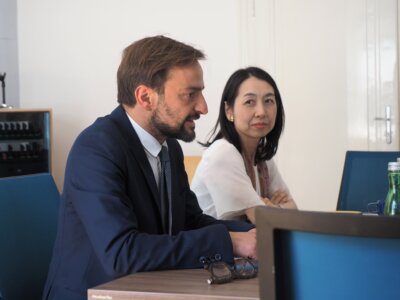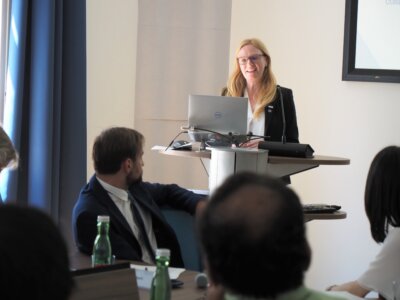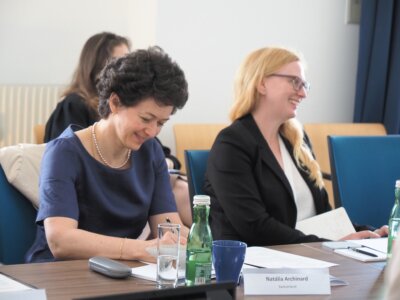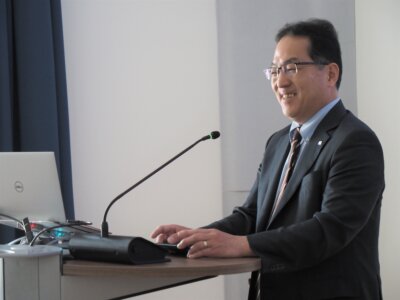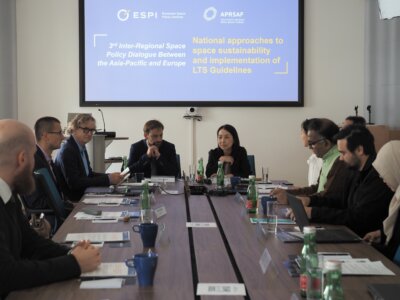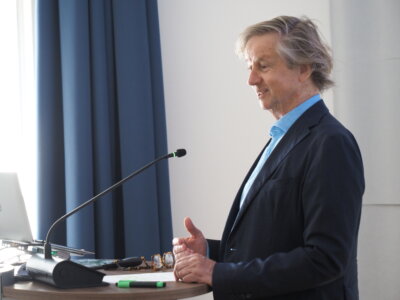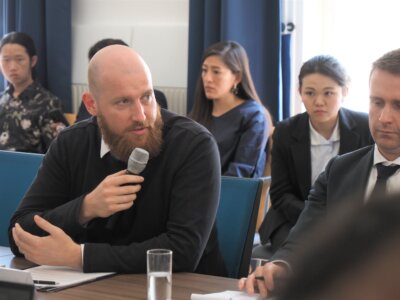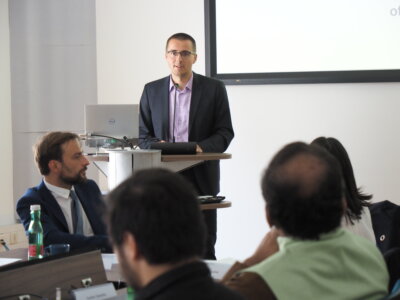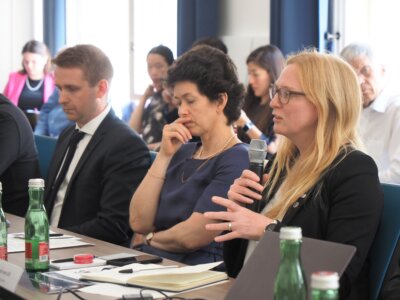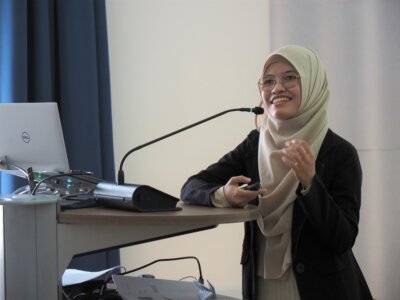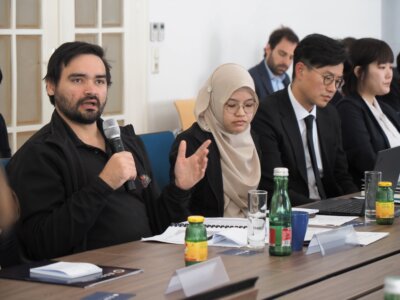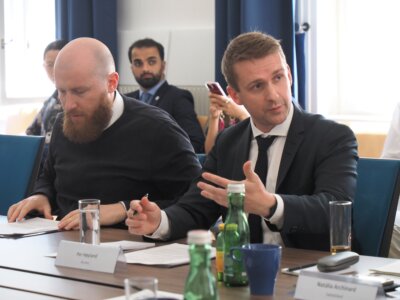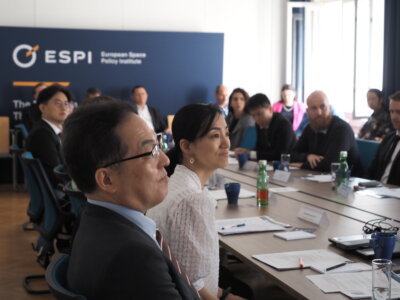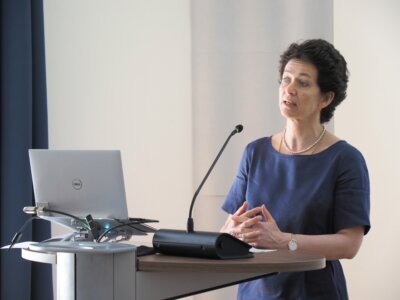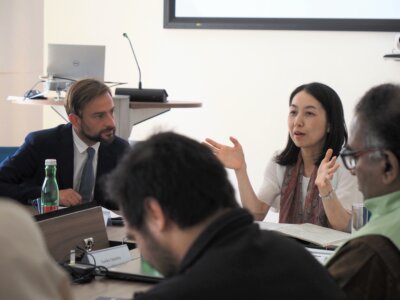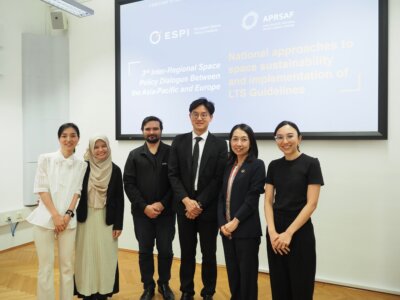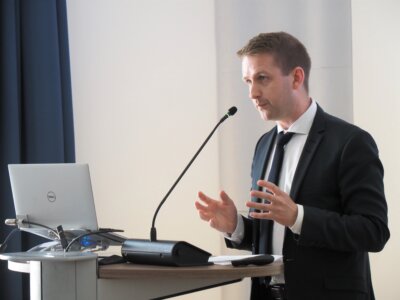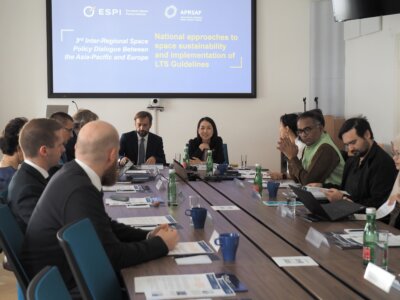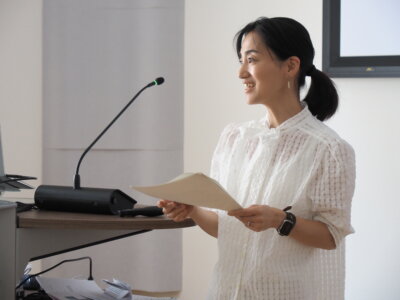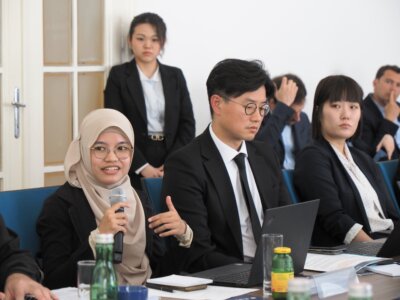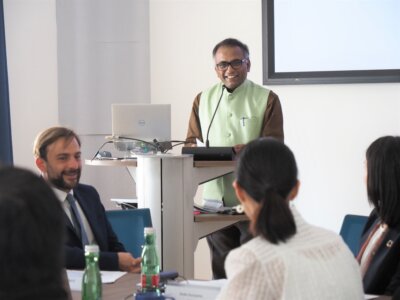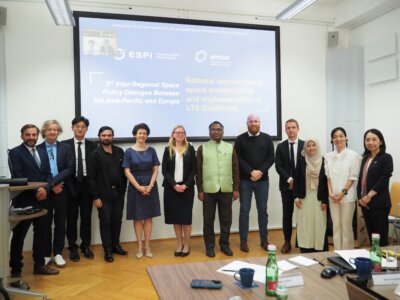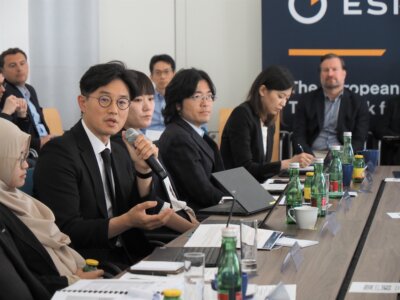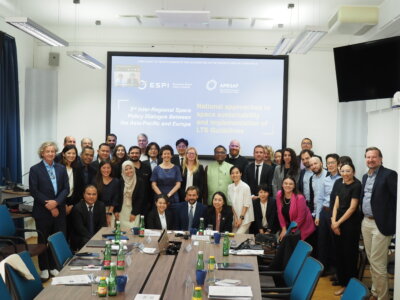On 3 June 2023, the European Space Policy Institute (ESPI), in cooperation with the Asia-Pacific Regional Space Agency Forum (APRSAF), hosted the third Inter-Regional Space Policy Dialogue Between the Asia Pacific and Europe with invited speakers from Australia, Germany, India, Indonesia, Norway, Japan, South Korea, Switzerland, and the United Kingdom. The Dialogue took place on the occasion of the submission of the National Space Legislation Initiative (NSLI) report at the 66th session of the United Nations Committee of the Peaceful Uses of Outer Space (UN COPUOS) for promoting understanding of each region’s space policies.
The Dialogue provided participants with the opportunity to exchange information and learn about the development and implementation processes behind the space policies of each country in attendance. The Dialogue featured technical presentations by experts from each country and concluded with a round-table exchange on the Dialogue’s over-arching topic: “National Approaches to Space Sustainability and LTS Guidelines Implementation”. Topics discussed ranged from public-private relations in ensuring the implementation of the LTS guidelines, the role of private actors in safety and sustainability efforts, the way forward for the LTS 2.0 Processes, and expectations of the NSLI.
Technical presentations on how each participating country is implementing the LTS Guidelines were made by the following speakers:
- Michael Cook – Assistant Manager, Australian Spacy Agency (Australia)
- Maximilian Betmann – Advisor, UN Affairs Department of the German Space Agency at DLR (Germany)
- Yunita Permatasari – Indonesia Space Agency Secretariat (Indonesia)
- Per Høyland – Advisor for Strategic Analysis, Norwegian Space Agency (Norway)
- Kenichi Fujita – Director, National Space Policy Secretariat (Japan)
- Sangwoo Shin – Senior Researcher, Korea Aerospace Research Institute (South Korea)
- Natália Archinard – Deputy Head of the Science, Transport and Space Section, Federal Department of Foreign Affairs (Switzerland)
- Sarah-Jane Gill – Head of International Relations, UK Space Agency (United Kingdom)
In addition to presenting on how each of their respective countries are implementing the LTS Guidelines, the speakers also presented on a variety of broader topics covering national policy and regulatory frameworks, ensuring the safety of space operations, international cooperation and capacity-building, and scientific and technical research and development.
Indeed, several national space policies and legal frameworks are currently under review by appointed expert bodies within individual states. Key points of concern that such reviews would address include, but are not limited to, the increased risk of collision in orbit, the challenges raised by large satellite constellations, the need for international space traffic coordination and management, and the need for scientific research and new technical solutions with respect to orbital debris.
Presenters highlighted various research activities ongoing in their home countries to promote sustainable space technologies, which have increasingly included integrating new scientific findings into product safety and sustainability requirements.
Finally, participants acknowledged the importance of rulemaking on enhancing debris mitigation and remediation measures through international cooperation such as by sharing good practices and the results of technical development, bearing in mind that debris mitigation and remediation measures are crucial to the sustainable use of outer space.
Following the delivery of their presentations, participants were invited to engage in a round-table discussion. Topics discussed included, but were not limited to, balancing commercial viability with sustainability, best practices for engaging industry in the adoption and implementation of sustainable policies, and capacity-building with developing states and emerging space actors.

